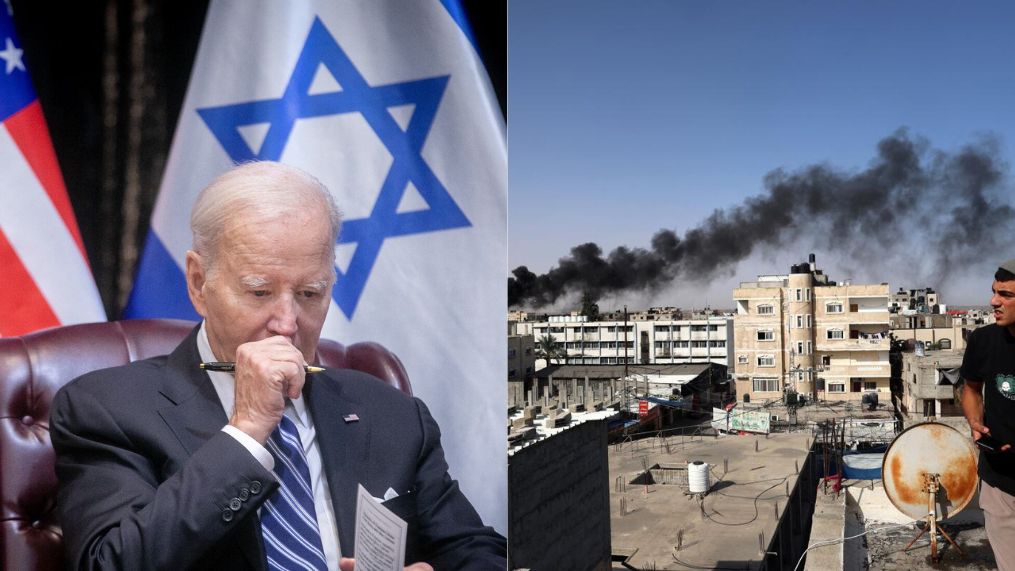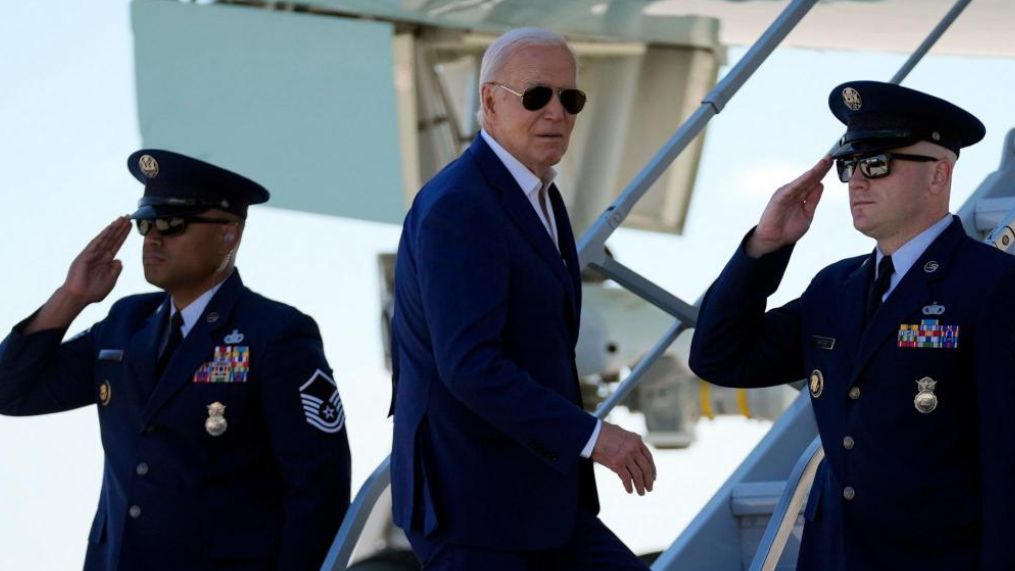President Joe Biden‘s choice to temporarily halt bomb shipments to Israel, prompted by attacks on Rafah, has sparked a range of responses.
While some Democrats applaud Biden’s decision as a step towards accountability, others view it as insufficient. Protests demanding an end to military aid to Israel and a ceasefire in Gaza persist, indicating ongoing dissatisfaction.
Critics argue that Biden’s action, albeit significant, arrives late in the conflict and fails to fully address the concerns of protestors.
Stephanie Fox, from Jewish Voice for Peace, welcomes the move but stresses the need for a fundamental shift in U.S. policy towards Israel.
Protesters advocate for a comprehensive approach, calling for the suspension of military aid, a lasting ceasefire, and university divestment from companies supporting Israel’s actions.

Despite Biden’s calls for a temporary ceasefire and support for a two-state solution, significant weapons shipments to Israel continue.
The issue of U.S. support for Israel resonates with younger voters, as highlighted in focus groups where Gaza emerged as a key concern.
While some argue that the issue only matters to a minority, declining support for military aid to Israel and Biden’s lukewarm approval ratings suggest broader discontent.
With slim margins of victory in key battleground states, Biden’s reelection prospects hinge on maintaining support from diverse factions within the Democratic Party.
While the “uncommitted” movement urges voters to consider alternative candidates in state primaries, others demand more decisive action from Biden to address the Israeli-Palestinian conflict.
As tensions persist, Biden faces pressure to find a delicate balance between supporting Israel and responding to calls for accountability and change.




